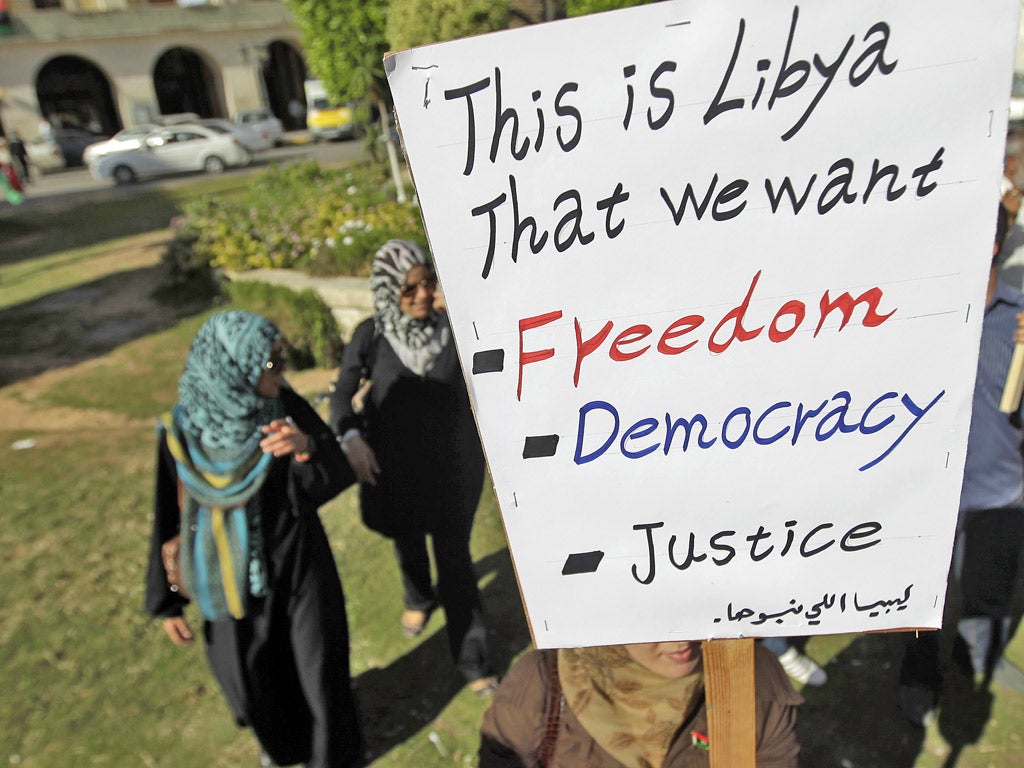Patrick Cockburn: This was always a civil war, and the victors are not merciful
The purge of Gaddafi supporters is made more dangerous by infighting between the militias


Your support helps us to tell the story
From reproductive rights to climate change to Big Tech, The Independent is on the ground when the story is developing. Whether it's investigating the financials of Elon Musk's pro-Trump PAC or producing our latest documentary, 'The A Word', which shines a light on the American women fighting for reproductive rights, we know how important it is to parse out the facts from the messaging.
At such a critical moment in US history, we need reporters on the ground. Your donation allows us to keep sending journalists to speak to both sides of the story.
The Independent is trusted by Americans across the entire political spectrum. And unlike many other quality news outlets, we choose not to lock Americans out of our reporting and analysis with paywalls. We believe quality journalism should be available to everyone, paid for by those who can afford it.
Your support makes all the difference.The detention of 7,000 people in prisons and camps by the anti-Gaddafi forces is not surprising. The conflict in Libya was always much more of a civil war between Libyans than foreign governments pretended or the foreign media reported.
The winning anti-Gaddafi militia are not proving merciful. Often they have had relatives killed in the fighting or imprisoned by the old regime who they want to avenge. Sometimes they come from tribes and towns traditionally hostile to neighbouring tribes and towns. Gaddafi supporters are being hunted down. According to one person in Gaddafi's home town of Sirte, they are facing a "continuing reign of terror".
"There is a deep and spreading frenzy, particularly among some of the youth militia and the Islamists, to hunt down anyone associated with the former regime," the source said.
The National Transitional Council, whose control is largely theoretical, is not in a position to stop this purge because many of its members are themselves frightened of being accused of links with the old regime.
Some groups are particularly vulnerable. The then-rebels were convinced earlier this year that many of those they were fighting were mercenaries recruited in Central or West Africa. But when these alleged "mercenaries" were arrested in Tripoli, many turned out to be black migrant labourers without identity papers.
According to Amnesty International, some of those who were put on television by the rebels as mercenaries were later quietly freed because they were migrant workers. Others faced mob justice before they were able to prove their identities.
The international media was overwhelmingly hostile to Gaddafi's regime and tended to highlight atrocities committed by it and disregard or underplay human rights violations carried out by his opponents. An example of this occurred when eight or nine bodies of Libyan soldiers were found who appeared to have been executed. The rebels claimed they had been shot by Gaddafi's men because they tried to change sides. But Amnesty located a film of the soldiers being captured alive by the rebels and it was presumably the rebels who killed them.
The purge of Gaddafi supporters is made more dangerous by the infighting between the militias, and between them and the politicians. Association with the old regime can be used to discredit an opponent. There may also be self-interest since death squads are reported to be taking their property.
Join our commenting forum
Join thought-provoking conversations, follow other Independent readers and see their replies
Comments